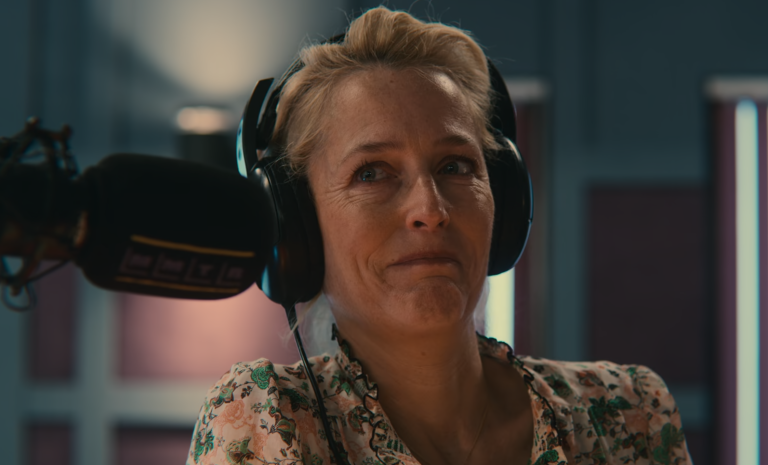Roald Dahl’s Matilda The Musical (2022) Movie Review:
Matilda Wormwood (played by Alisha Weir) is a bright young girl with telekinetic powers. This is her story as she gets enrolled in a school and stands up against the tyrannical headmistress, Miss Trunchball (played by Emma Thompson). It was penned down by Roald Dahl in his 1988 book, which is named after its fiery little protagonist. The 2022 Netflix adaptation of the Matilda story, Matilda the Musical, directed by Matthew Warchus, draws inspiration from its 2011 stage adaptation. The former rethinks Matilda’s story and gives it a color-popping, jolly, hopeful twist that makes it a near-perfect Christmas watch.
The colorful scenes that open the film are campy and bring out the essence of a musical. These colors that announce the birth of a baby wonder, Matilda, to her parents quickly dissipate and drag us into the real world. Matilda is around six years old and has never been to school but loves reading and storytelling. Her parents aren’t her biggest cheerleaders, but Matilda knows that someone who does wrong to her must be wronged. The real essence of every Roald Dahl story lies in the magic of the everyday world. It is interested in understanding how the inherent innocence in children makes the real world a little bit fantastical in their experience. Of course, Matilda’s childhood is full of hardships, but the eccentricity of things around her confuses and startles her presently.
The biggest failure of the 2022 Netflix adaptation of Matilda’s story is the failure to bring this innocence on screen, despite the brilliant performance by the young Irish artist Alisha Weir. In one scene, where she hugs Miss Honey, Matilda seems like a kid whose innocence demands to be preserved against all the malicious forces in the world. In all other scenes, she appears to be too full of the world’s wisdom, from mathematics to the superb ability to conjure up plans to save her classmates from the headmistress’ punishing glare. Weir has her eyes full of curiosity and sadness throughout the film, making her one of the reasons you should definitely watch the movie. The screenplay also gives way too much importance to Matilda’s bravery and not enough to the little detail that Amanda Thripp continues to come to school in her pigtails despite being publicly shamed and punished by the headmistress.
The other good reason to watch this mediocre adaptation is Emma Thompson’s impersonation of Miss Trunchball. After her performance as Nancy Stokes in Goodbye to You Leo Grande (2022), this is another radically different role in which she hits the ball out of the park. Thompson brings to the role a characteristic fierceness that makes you want to crook your nose in hatred as you did with Professor Umbridge in the Harry Potter universe. The elaborate production design and well-coordinated choreography will play their part in keeping you engrossed through the span of the film, but with 13 songs spaced out tightly across the length of it, the peppy music starts to feel repetitive. I personally enjoy a musical that gets all its songs right. Matilda The Musical is halfway there, with only the “School Song” still stuck in a loop in my head.
This is a creative rethinking of Dahl’s Matilda story. In that, it works well. As a Roald Dahl adaptation, I think they missed the point. The world of magic that children perceive with their innocence lacks colors in this one, but at the end of the day, this is a story of hope. It feels like a warm, big hug after a long day, urging you to hold on and fight back because things always get better in the end.
What are the main differences between Matilda, the novel, and Matilda The Musical?
The 1988 Roald Dahl book, Matilda, is a piece of children’s literature that has found itself being adapted several times over the last three decades. The 2022 Netflix adaptation of Matilda; however, rethinks the original story and freely introduces and omits certain crucial plot points. The most noteworthy differences are listed below:
- Matilda has an elder brother, Michael, in Dahl’s original story. The book’s narrator hints at the malicious tendencies that he may have inherited from his father. However, the Netflix adaptation does not feature any Micheal. Matilda is an only child whom the parents keep addressing as a son instead of a daughter until the last moments of the 2022 adaptation.
- The book doesn’t focus on Matilda’s relationship with the traveling librarian. However, in the 2022 adaptation, there is considerable focus on Matilda’s relationship with Mrs. Phelps, the librarian. The latter almost serves as her only friend, guide, and confidant. She narrates the story of an acrobat and an escapologist, their daughter, and the evil step-aunt who mistreats this daughter. It is later found out that Matilda’s fictional tale is actually Miss Honey’s real-life story, and Miss Trunchball is the latter’s evil aunt.
- Matilda’s parents in Dahl’s book decide to move to Spain because their illegal activities have been found out by the police. In this adaptation, they are moving to Spain because their paths have crossed with the Russian mafia.
- Matilda’s prank had turned her father’s hair silver, unlike the green-colored hair that he dons in this Netflix adaptation.
Roald Dahl’s Matilda: The Musical Movie Ending, Explained:
The day after Matilda destroys the Chokey, Miss Trunchball is furious. She summons the class to the cafeteria and organizes a spelling test. Hoping the kids would make a mistake, she picks out one kid after another and asks them to spell difficult words, but each succeeds, making the headmistress angrier. When she wrongly tries to accuse one of the students of having failed the test, the other kids speak out in solidarity and ask the headmistress to sentence all of them to the Chokey.
Miss Trunchball seems to have come prepared. She reveals all the chokeys she built in the room to punish all the children. An angry Matilda yields her telekinetic powers to pick up a chalk in the air and write a faux message on the board for Miss Trunchball, asking her to return Miss Honey her property and assets. She pretends to be the ghost of Magnus, the escapologist from her tale, and Miss Honey’s father. The same telekinetic power forces the headmistress’ hair into pigtails, hurls her outside the window, and leaves her fleeing for her life from the school.
Miss Honey collects the keys from the headmistress and announces herself as the school’s new headmistress. The whole school is about to step into a celebration when Matilda’s parents show up at the school gate. They want to take Matilda away with them to Spain. Miss Honey intervenes when she perceives the mistreatment that young Matilda may be facing at home every day. She volunteers to adopt her, pay for her expenses, and keep her with herself to care for, love, and respect her. The parents are astonished, but they agree without much coercion. While her parents speed out to Spain, Matilda wraps Miss Honey in a long hug.
In the end, the whole school seems to be undergoing a character change, from a drab grey place where children are sent to learn rules to a place for all things fun and entertainment besides learning. Matilda and Miss Honey seem happy in each other’s company, and the film closes with them holding hands. With her decision to adopt Matilda, Miss Honey helps break a cycle of abusive treatment during childhood and saves Matilda Wormwood from becoming another sorry version of Miss Honey. It is an ending that also wants us to know that everything always turns out well in the end, most of the time, if not always.

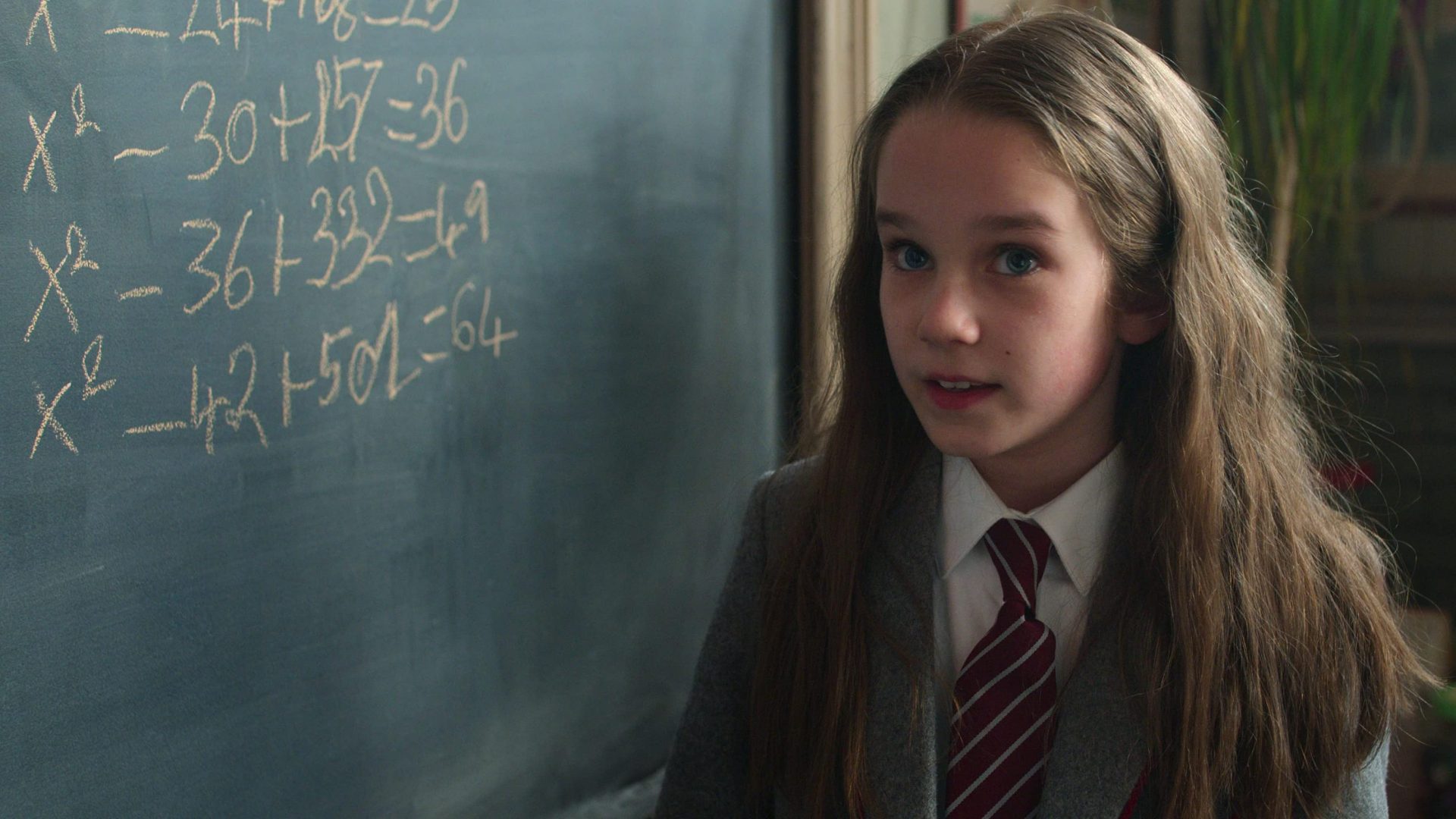



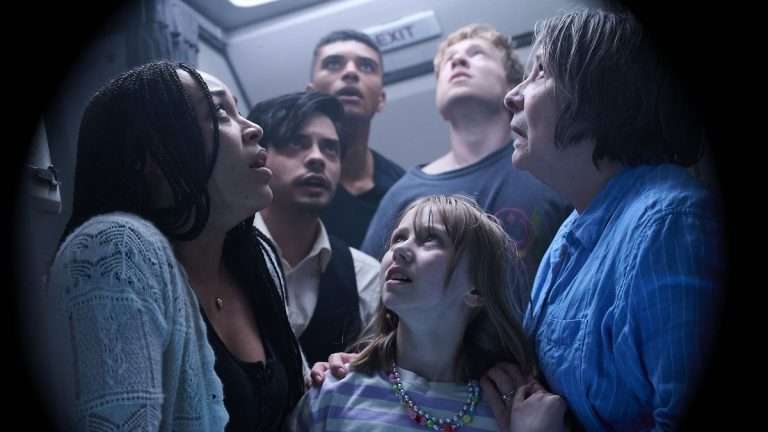
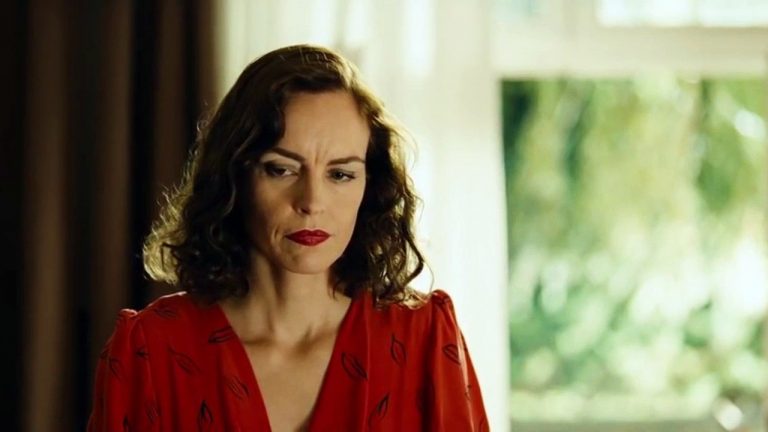

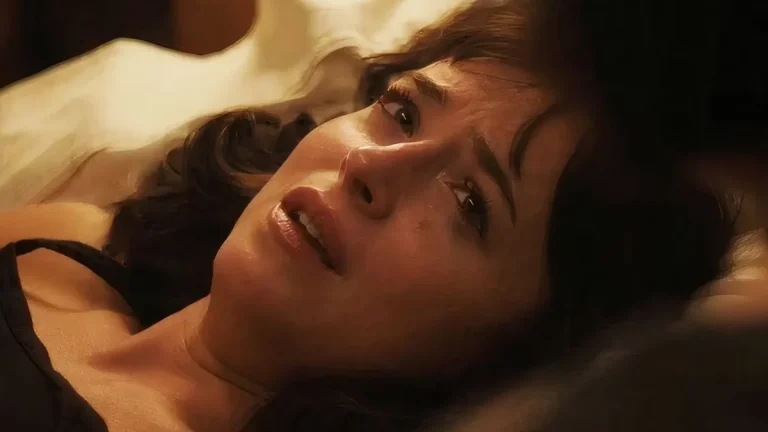
![Here and There [2021]: ‘NYAFF’ Review – Rom-Com in the Time of COVID-19](https://79468c92.delivery.rocketcdn.me/wp-content/uploads/2021/08/Here-and-There-5-NYAFF-768x488.jpg)
